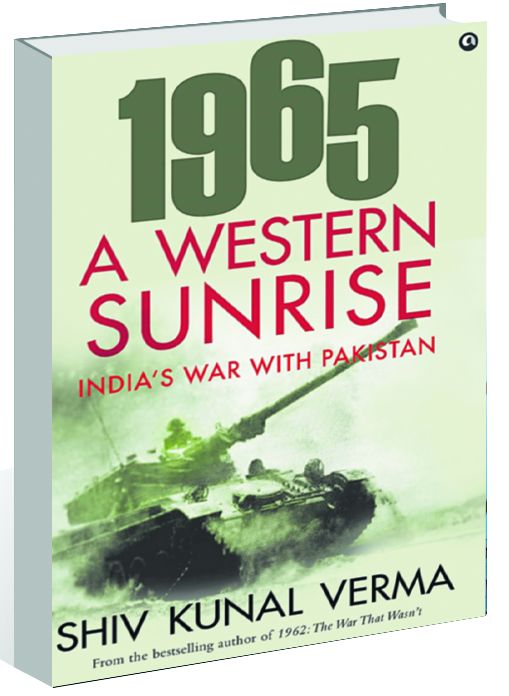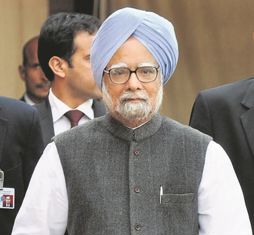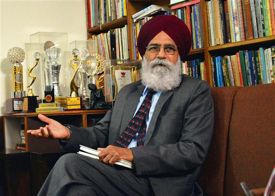1965: A Western Sunrise by Shiv Kunal Verma. Aleph. Pages 576. Rs999
Book Title: 1965: A Western Sunrise
Author: Shiv Kunal Verma. Aleph
Lt Gen Vinayak Patankar (Retd)
The debate on who won the Indo-Pak War of 1965 may finally be settled by Shiv Kunal Verma’s book ‘1965: A Western Sunrise’. If one considers that India recovered after the initial setbacks and took the war to Pakistan, ending it on its terms, then India could be said to have won it. On the other hand, Pakistan treats it as an unqualified victory and celebrates it as ‘Defence Day’, a clever ploy to settle the argument! The author has carefully studied the events that led to the war and the way it was prosecuted by both sides. In so doing, he has not only deconstructed the geo-politics and ground realities obtaining at the time, but political ambitions and compulsions among the leadership on both sides of the border.
He begins his review with the state of India’s political leadership in the aftermath of the drubbing at the hands of the Chinese in 1962. It starts with the appointment of YB Chavan as the Defence Minister, a ‘go-to’ man for Prime Minister Nehru. Chavan, in turn, deems it his duty to protect the PM. Far from a dispassionate, objective analysis of what went wrong and naming the individuals responsible, his silence and inactions on that score amounted to a cover-up. He remained silent even when he was not consulted in the selection of Gen JN Chaudhary as the next Chief of the Army Staff. The need of the hour then was clearly to quickly rebuild the Army’s morale and fighting capabilities, a task for which Gen Chaudhary was unsuited. Poor civil-military relations, apparent from the apathy to genuine and essential requirements of the armed forces shown by the bureaucracy, only worsened the situation.
In contrast, Pakistan’s political scene appears to have been upbeat, buoyed as it was by receiving generous aid after joining pacts like CENTO and SEATO. It included the latest weapon systems like Patton tanks and fighter aircraft like Sabres and Starfighters. It gave Pakistan’s armed forces a sense of superiority over their arch rivals. That, combined with ambitious, hawkish politicians like Zulfikar Ali Bhutto, made for an explosive mix. Bold plans, bordering on the reckless, like Operations Gibraltar and Grand Slam were a direct result of that mix.
The detailed unfolding of Pakistan’s military operations and the response of India’s armed forces have been covered in great detail. Pakistan’s aggression in the Rann of Kutch should have been thwarted with adequate force by India, whereas it was treated like a border skirmish with an incremental approach. After the tepid response in the Rann, the offensive action by the Indian Army by capturing of important posts in the Kargil area should have been followed up by a strong reposte by way of Operation Ablaze, which proved to be a damp squib.
Shiv Verma has obviously done very detailed research of all the phases of the war. He has a good understanding and grasp of operational concepts, manoeuvres and tactics, which is evident from the manner in which he describes accounts of various battles that took place on the ground and in the air. He tells it as it happened. Besides, he is a gifted story-teller. Verma builds his narrative quoting names of people and places and even conversations. He does not hesitate to point out blunders made and opportunities lost, albeit with the benefit of hindsight, by commanders of both sides, to make it engagingly authentic.
He points out that Pakistan army’s over-reliance on tanks was its undoing but at the same time, its artillery and Pakistan Air Force (PAF) played a decisive role. The damage and casualties caused by PAF could have been a lot less if only the Indian Air Force (IAF) had been co-opted in the planning and execution of operations by the Army. The IAF, too, could have saved many of its aircraft on the ground by dispersing them into blast pens.
Verma is also full of praise for the Indians for their initiative, determination and bravery. Their armour, infantry and artillery units fought with great determination and grit against Pakistan’s superior weapon systems and aircraft, inflicting severe damage which often proved decisive.
The book reads like an unputdownable novel that both the civilian and military readership will enjoy equally. A very fine account of the 1965 war that refreshingly leaves the reader to decide who won it.














